How Billionaire CNN Founder Ted Turner Invented the 24-hour News Cycle
“I’ve got a bunch of flags on my boat, but there ain’t no white flags. I don’t surrender. That’s the story of my life.”
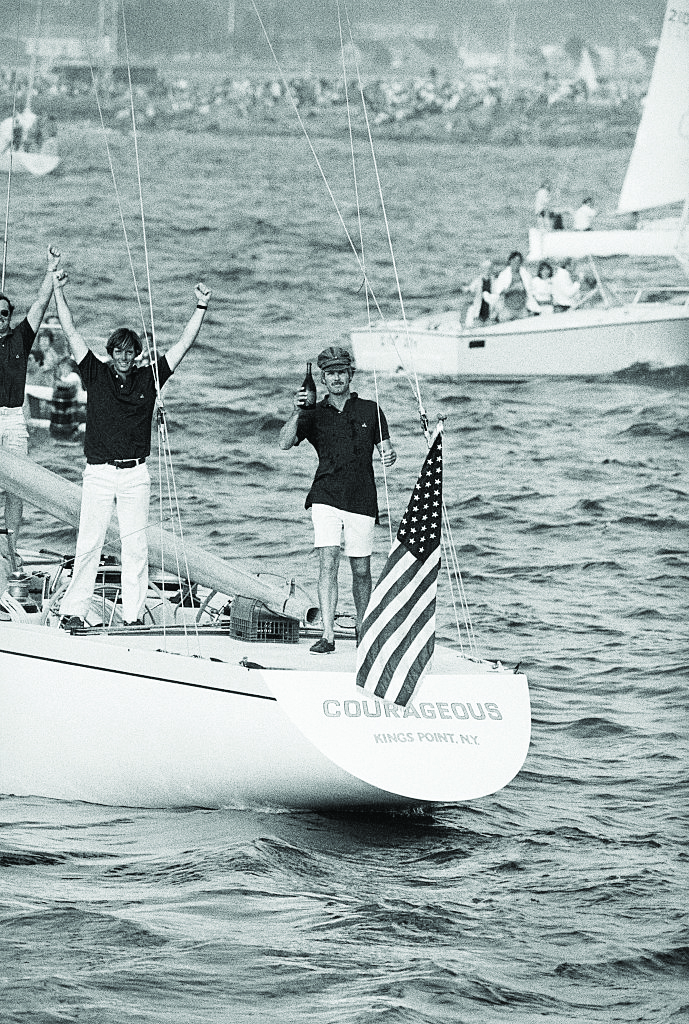
When media mogul Ted Turner launched his Cable News Network on June 1st, 1980, it marked a watershed moment for the information age. Despite initial public skepticism, CNN’s unique around-the-clock news coverage not only changed the television news industry, it altered our entire society and set it on a course it would travel for the next four decades.
After the public’s adoption of CNN and the 24-hour news cycle, no longer were people willing to wait for the evening news for updates on current events. They wanted it immediately. Likewise, no longer would they be satisfied with checking stock prices, weather forecasts and sports results in the morning newspaper.
Society’s demand for information, and the expectation that it be available instantly and constantly, can be at least partially attributed to the prescience and intuition Turner showed in founding CNN. Many point to CNN’s coverage of Operation Desert Storm as a pivotal point in bringing the channel, and the need for 24-hour news coverage, to a huge segment of America. But its impact can be felt constantly, even when war is not raging live from the other side of the globe.
Turner also set the stage, purposefully or not, for a society even more amenable to the introduction of the internet and its subsequent acceleration of the information age. From late-night work emails to mobile notifications, and social media to streaming media, CNN helped make the public comfortable with, and eventually demanding of, the ability to get the information they want, anytime they want it. Simply, Turner did far more than mold a cable news channel, he helped shape the 24-hour society we inhabit in the 21st century.
Born in Cincinnati, Ohio in 1938, Turner went on to study at Brown University, although he departed in 1959 without completing his degree, to work for his father’s Turner Advertising Company. It’s at this time that the tale of Ted Turner’s rise to billionaire, global media icon and revered conservationist began, albeit cloaked in unspeakable tragedy and personal loss.
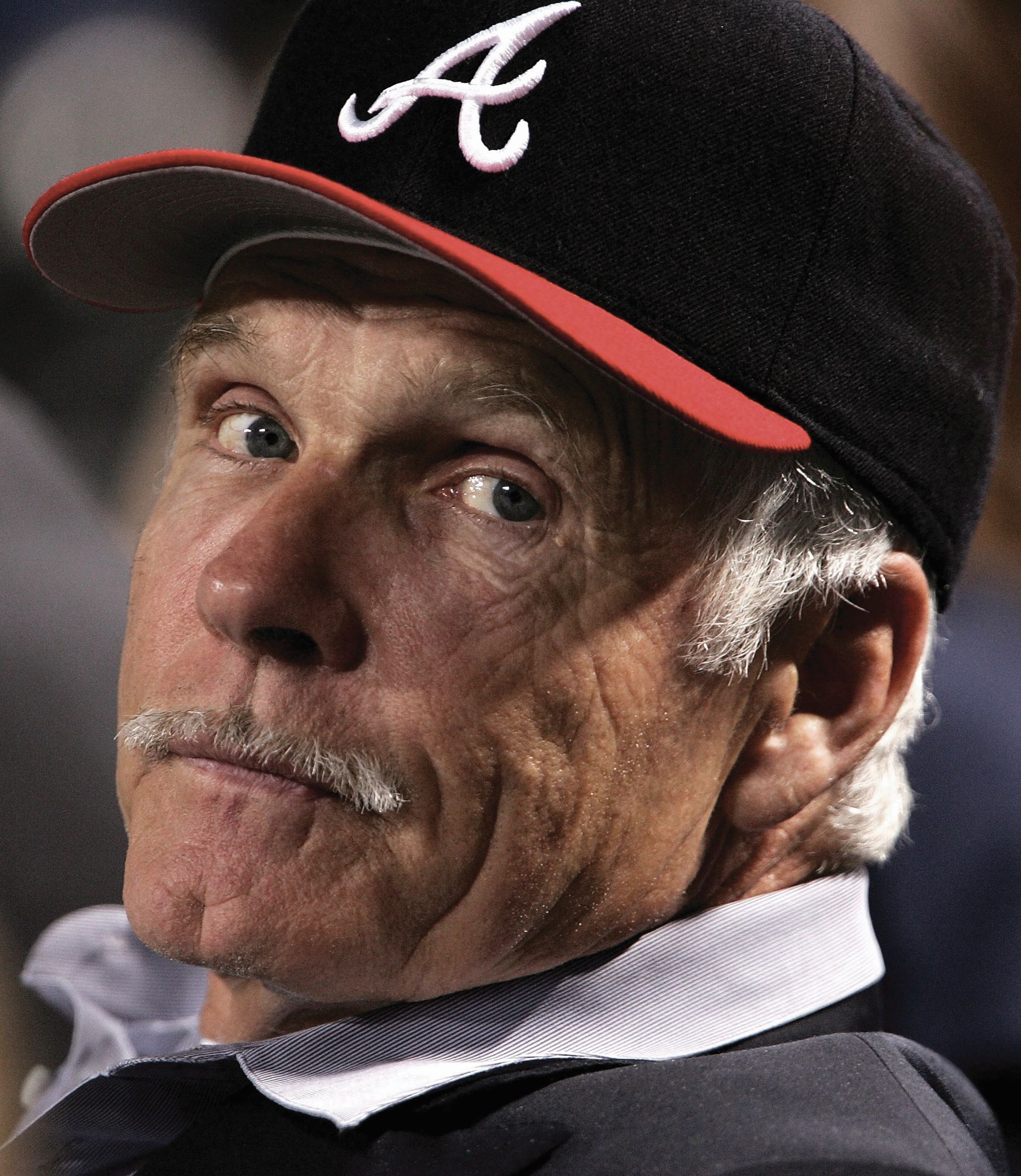
Turner’s father took his own life in March of 1963. In the aftermath of the shock and fallout this caused, Turner took over as President of Turner Advertising Company. With the tenacity for which he would later be known, Turner had stabilized the business by the end of the decade, and set his sights on a new industry—television. His first move after renaming the family business Turner Communications Group was to purchase two independent UHF television stations in the Atlanta and Charlotte markets. If this first foray into television was Turner dipping his toes in the water, then he jumped off the deep end with his creation of Turner Broadcasting System (TBS) in 1976.
TBS was the first “superstation” in the United States, as its content was beamed nationwide with satellite technology. Revolutionary, it would serve as a pioneer in the nascent cable television revolution, and Turner would follow by creating several other successful networks including CNN2 (now Headline News) in 1982, Turner Network Television (TNT) in 1988, Cartoon Network in 1992 and Turner Classic Movies (TCM) in 1994.
TBS and TNT remain some of the biggest names in cable television, which alone would give Turner an outsized impact on the television industry from both a distribution and business model perspective. But his creation of CNN would see a flood of around-the-clock competitors follow in its wake. Consider Fox News and MSNBC in news, and CNBC, Fox Business and Bloomberg in finance. Once he had dived headfirst into the unknown of 24-hour news, it seemed there was no shortage of others now eager to follow the trail he had boldly blazed.
Even Turner’s publicist, promoter and close confidante during this era, Bob Hope, was incredulous at Turner’s abilities and drive, writing in the Atlanta Business Chronicle, “I had no idea what was happening or how big things could grow. However, it was clear that Ted Turner was special. His vision and his determination and his unwillingness to quit were infectious. He was willing to start small and had the persistence and patience to make his ideas grow. In some ways, he was outrageous, but in most ways he was remarkable. He had great passion for doing what was right for the world. He stated his dream of using communication to bring peace, to tell both sides of any story, that ‘one man’s terrorist is another man’s freedom fighter.’ If he could get people to understand each other, there would be no wars. His vision was bold and infectious.”
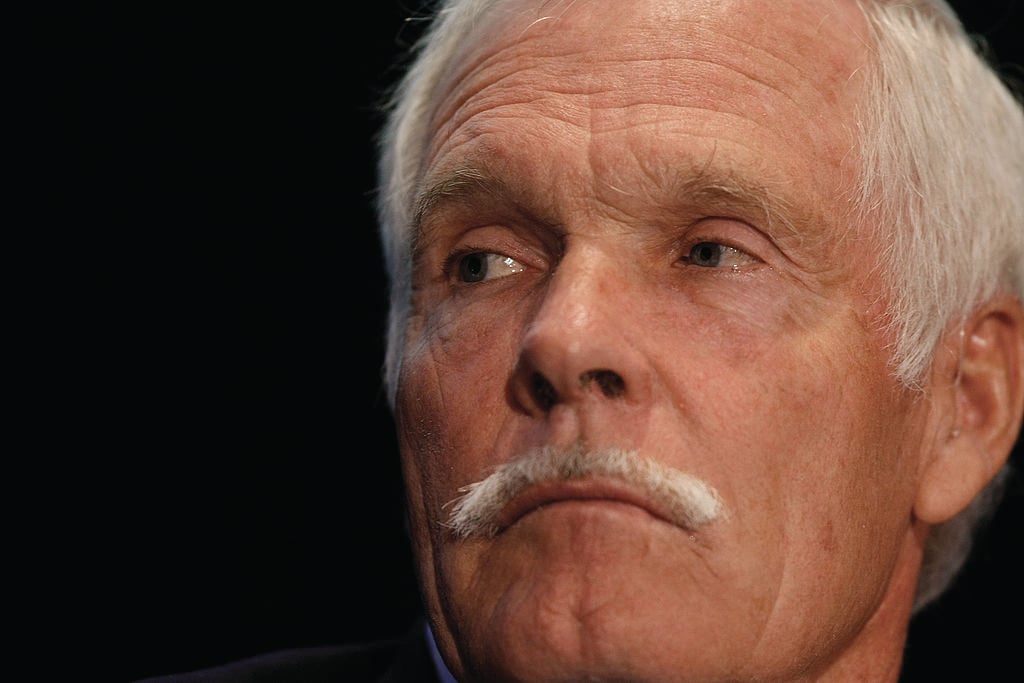
At this point Turner had a burgeoning television empire, in addition to becoming the owner of both the MLB’s Atlanta Braves in 1976 and the NBA’s Atlanta Hawks in 1977. He was the unofficial King of Atlanta one might say, and one of the scions of the cable television revolution… but that’s almost where his story ended.
Turner, an avid competitive sailor, was already a 1977 America’s Cup champion when he entered his yacht, Tenacious, in the 1979 Fastnet offshore race. The Fastnet is a biennial competition down the English Channel and across the Celtic Sea.
The infamous disaster that occurred that year cost 15 Fastnet competitors their lives, in addition to the tragic loss of an additional six spectators, as a hurricane-force storm tore through the competition and helpless racing boats. Boats sank or were abandoned. Commercial and military vessels and aircraft scrambled to pluck sailors from the frigid waters before they too became victims.
While Turner was no doubt at severe risk during the chaos that unfolded, his response after the race is a good insight into the psychology of the man himself. Famously, after not only surviving the ordeal but actually completing and winning the disastrous race, Turner told the media “I was more afraid of losing than I was of dying.”
He even maintained his sense of humor, and his love of history from his time at Brown, telling the media, in a reference to the extreme weather that plagued the Spanish Armada attempting to invade England in 1588, that, “You ought to be thankful there are storms like that, or you’d all be speaking Spanish.” It takes a certain type of person to not only survive a horrifying ordeal but maintain a sense of humor. Turner appears to be one of those people.
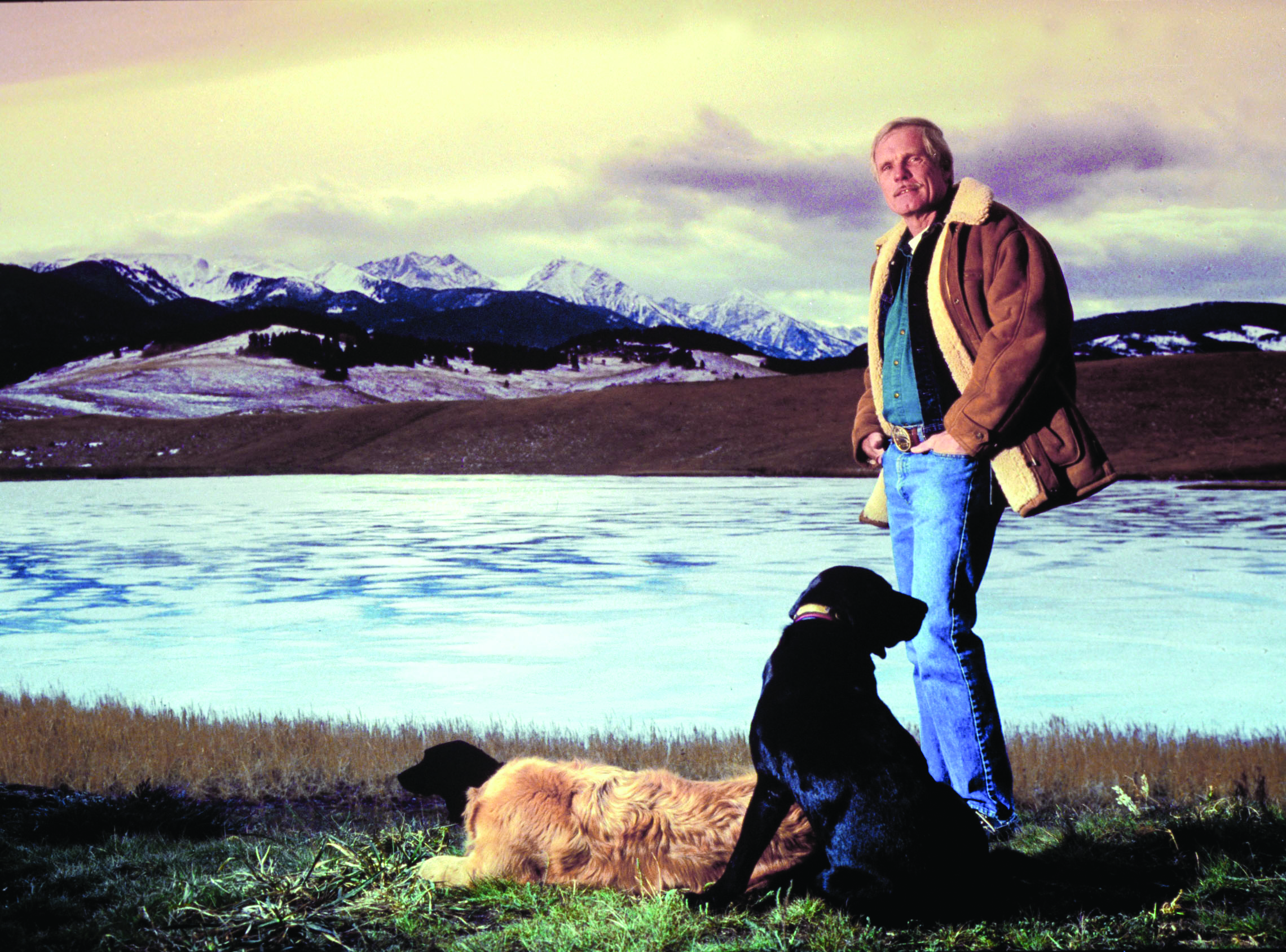
Perhaps most insightful were his comments in a colorful 1978 interview with Playboy, in which he explained the purity of his drive and ambition. “I’m like a bulldog that won’t let go. Why do you think my own racing yacht is named Tenacious? Because I never quit. I’ve got a bunch of flags on my boat, but there ain’t no white flags. I don’t surrender. That’s the story of my life.”
Turner’s media empire was growing and thriving as cable television became more popular nationwide. But soon another of his interests would also prove to be of immense importance to the media mogul. In 1987, Ted Turner bought a ranch. But not just any ranch— the spectacular Bar None Ranch in Montana.
Then he bought another, and another, and another. Today, Turner is the second largest individual landowner in the United States (behind only businessman John Malone), and between his personal and ranch holdings is estimated to own approximately two million acres. With 15 ranches located across Montana, Nebraska, Kansas, New Mexico, Colorado, and South Dakota, in addition to three more in Argentina, Turner’s portfolio of ranches maintains more than 45,000 bison, both as a sustainable business and a preservation effort.
But besides property value or livestock opportunities, it is Ted Turner the conservationist and environmentalist behind these monumental investments and commitments to solving difficult problems. Turner founded the Turner Foundation in 1990 to work on these issues, crafting its foundational principles himself: “to protect and restore the natural systems—air, land and water—on which all life depends.”
The Turner Foundation, Inc. has awarded over $400 million in grants since its founding, and continues to disperse millions of dollars each year to organizations and causes in line with its guiding principles. According to TFI, current efforts are focused on “conserving land to protect and restore wildlife diversity; catalyzing the transition to a clean energy future; and protecting and restoring water resources for people and nature.”
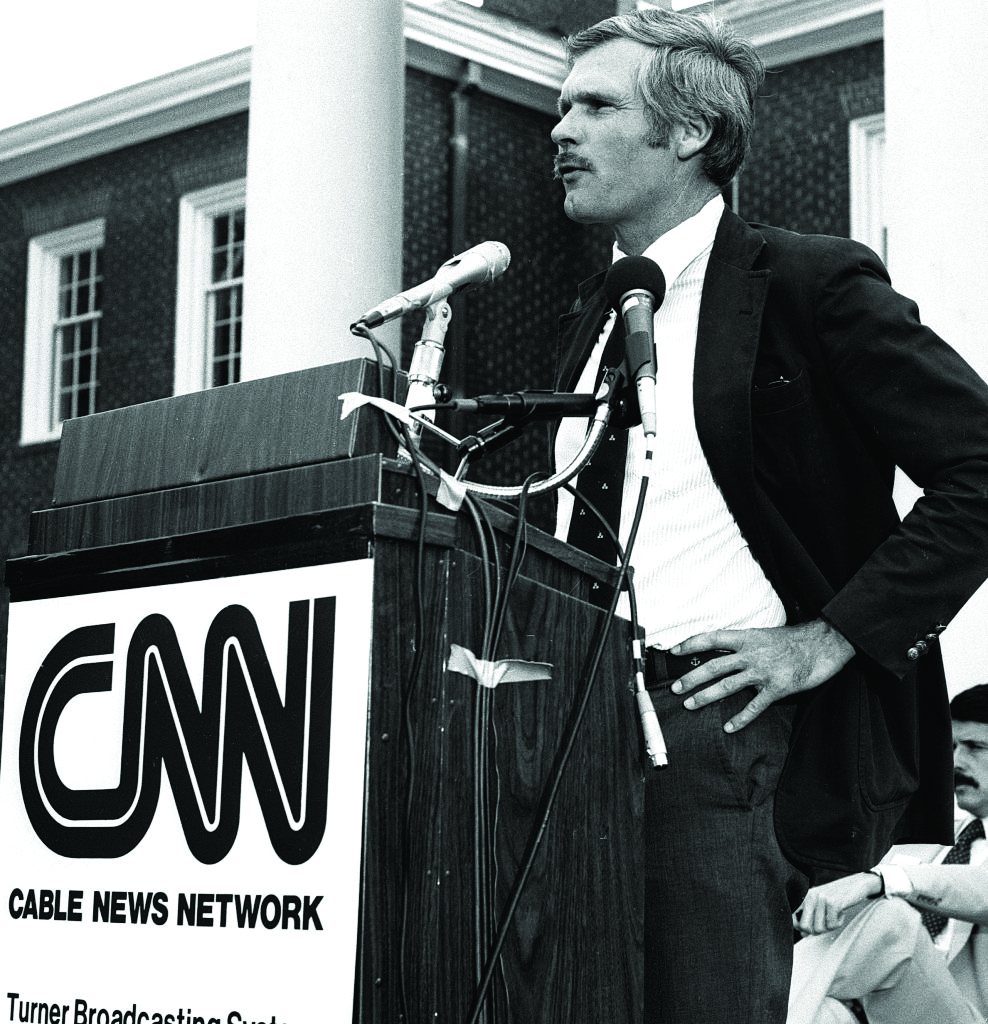
It was Turner who helped launch the famous animated series Captain Planet and the Planeteers in 1990, and cofounded the foundation based on its name the following year. The show’s success was great, but Turner used it as a vehicle to support environmental projects and programs for kids. The foundation continues to encourage global youth to work to solve environmental issues in their own cities and countries. Additionally, a core program for Turner is the Turner Endangered Species Fund. Launched in 1997, it works to protect endangered or imperiled species.
Perhaps most eye-catching was the $1 billion pledge Turner made to the UN, helping to create the United Nations Foundation (UNF). Thanks to Turner’s contribution and commitment, the UNF is able to work on core issues including the climate and environment, equality for girls and women, global health, and peace, human rights and humanitarian efforts. The same way CNN has gone global, so have Turner’s philanthropic efforts.
It hasn’t been all smooth sailing for Turner. After selling the Turner company and its assets to Time Warner in the mid-’90s for roughly $7.3 billion in stock, he saw his stake tumble in value as the AOL Time Warner era that followed saw share prices drop. But if a man can survive against the dark waves and freezing water of the stormy English Channel “because I never quit,” it should be no surprise that he weathered that financial storm and maintains a multibillion-dollar fortune, according to Forbes.
In the preface of his autobiography Call Me Ted, Turner himself reflects on his roller-coaster life and the traits that carried him through difficult times, admitting with his typical sense of humor, “I’ve accomplished a lot, but nothing was ever handed to me and I’ve had to bounce back from numerous setbacks. My childhood wasn’t easy, and I lost my father and my sister tragically and too young.
“When I began sailing I lost race after race and nearly died at sea a few times, but I stayed with it long enough and hard enough to become a world-class champion skipper…. Through a lot of hard work and a little bit of luck I built a successful media company and a large fortune, only to get pushed aside and lose 80 percent of my wealth, all within a two-year period. (Don’t worry about me, though—I’m figuring out how to get by on just a couple of billion dollars!”)
But it’s not a fortune that will sit idle indefinitely. Turner has committed to the Giving Pledge, which promises that he will donate the majority of his wealth to philanthropic causes.
Not that he needed to do so, as he’s already proven to be not only a trailblazer and iconoclast in business, but one of the most devoted and impactful conservationists and environmental supporters. In her deep profile of, and interview with, Turner, CNN Digital’s Ann O’Neill summarized the man, succinctly writing, “Ted Turner believes you only get one shot —having seen no proof of past or future lives—and so he has gone at it full throttle, cramming in countless incarnations as a sailor, rascal, adman, team owner, media mogul, gadfly, outcast, philanthropist, rancher and restaurateur.”
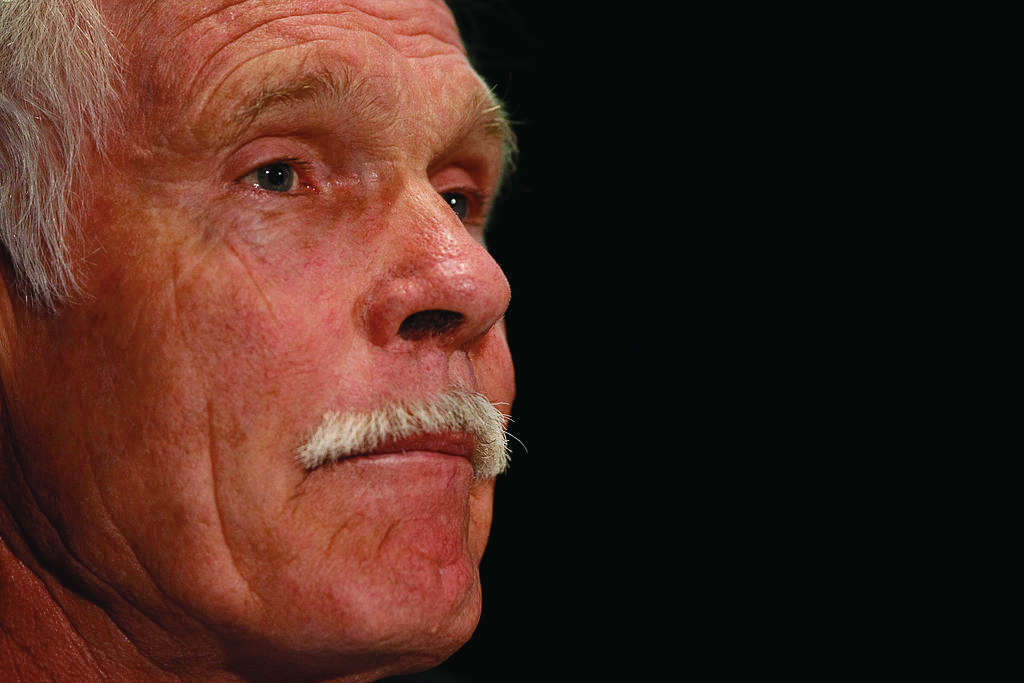
While Ted Turner has been a massively successful entrepreneur, a pioneer in both cable television and cable news, and one of the most effective philanthropists of our time, it’s hard not to think about perhaps the biggest impact he has had on the public at large. Our lives today don’t run on a nine-to-five schedule, and in today’s world information flows on demand, anytime, day or night.
While technological advances, the internet and mobile devices all have an enormous role in that development, it’s hard not to think of our lives as pre-CNN and post-CNN. Ted Turner was the innovator who realized the innate demand the American public had for information, and he was ahead of the curve when it came to the onset of the modern information age and the ease with which society would become acclimated to the concept of information immediacy.
So the next time you check a sports score at one a.m., a weather forecast on your phone, or the Tokyo Stock Exchange on your tablet, perhaps remember back to a time when a nonstop cable news network was considered radical—and the radical mind who not only saw the future but built it.
